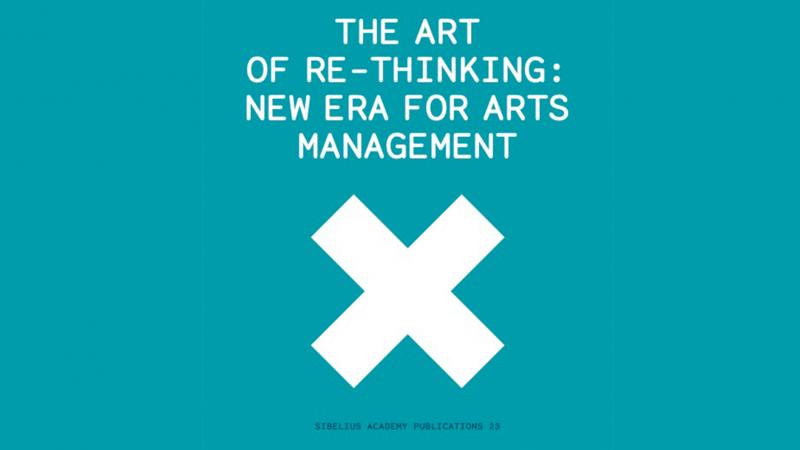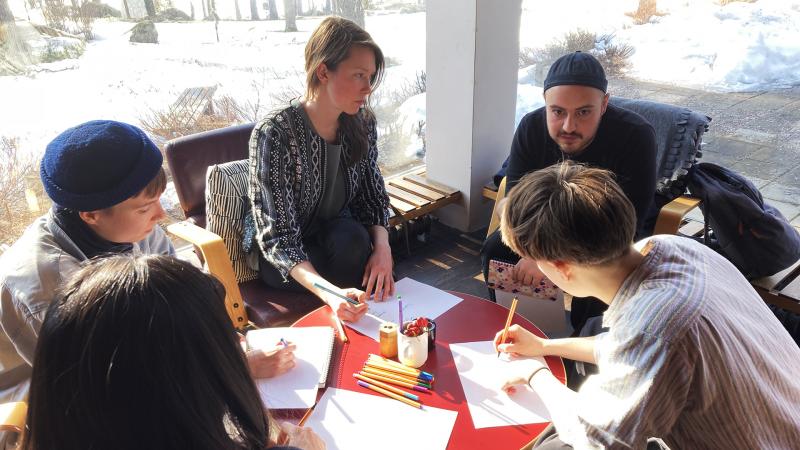Daniel Nordgård: We’re at the beginning of a golden age in music and music business
“The single most important skill in music business is adaptability, which means that the skills and knowledge taught in music schools need to have a degree of flexibility and entrepreneurship,” says prominent expert in music business Daniel Nordgård.

Associate professor in music, digitalisation and music business Daniel Nordgård from the University of Agder, Norway, shares his wealth of experience with Arts Management students as a visiting lecturer at the Sibelius Academy of Uniarts Helsinki in March.
In this interview, he talks about the long-term transformations and current hot topics in the changing landscape of music business.
What motivates and inspires you to teach Arts Management students at the Sibelius Academy?
I really look forward to meeting the students at the Sibelius Academy and to teach music business for them and together with them. This is a topic I’ve been involved with, in some way or another, for more than two decades and I’ve been teaching music business and management at the University of Agder for ten years now.
I’ve heard so many great things about the students at the Sibelius Academy and the staff at the Arts Management department, so I’m very excited about taking part in the teaching there. I have high expectations.
What keywords would you use to describe your teaching pedagogy?
That would have to be dialogue, curiosity and collaboration.
What do you think have been the biggest challenges in the music business in the last few years?
I believe the greatest challenge in music business these last years has been to adapt to change and to re-establish oneself in a different landscape, with different business models and different stakeholders.
The digital transformations that hit the music industries at the turn of the millennium had significant impact on music business, creative practice, fan engagement and much more. It took the music industries some time to reorganise themselves and figure out how to move forward.
Importantly though, the music industries are still part of a transitional phase, but while the beginning of the millennium was more about simply having people pay for recorded music again, much of today’s discussions are about how that money is being sustainably divided amongst a greater number of stakeholders, and how to make new formats and new digital business models sustainable – both in economic and artistic terms.
And then of course, we had Covid-19, which had a detrimental impact on the live music scene and continues to influence it. The pandemic will keep influencing both professional stakeholders and audiences for a long time, mostly through changed behaviours and changed professional ambitions.
How do you see the future of the music business?
I’m very optimistic about the future of music business! One thing to take out from the above-mentioned calamities that the sector has recently experienced, is that music business, or the music industries, is very resilient. People adapt.
These last two decades has demonstrated a sector with a high degree of flexibility and commitment to creating and producing music. More people than ever are listening to music, and more music than ever is available for people to listen to. There are some challenges following from this, which we’ll address in class, but it’s important to acknowledge that music, as an artistic, cultural experience, is in high demand.
And, since people have started paying for recorded music again, and with more formats and platforms available, I believe we’re at the beginning of a golden age in music and music business.
What kind of skills and knowledge will be needed to work properly and meaningfully in this business?
I think the single most important skill in this business is adaptability – to be able to adapt to changing conditions. This means that the skills and knowledge taught in music schools need to have a degree of flexibility and a degree of entrepreneurship.
Of course, you also need to have a good overview of how the music industries work, how it’s organised and what the main stakeholders do. Copyright is essential, or at least to understand the basic rights structures and how these inform the overall structures of music business.
And, you need to be kind. Music business is a people-business and despite the practice of some people, it’s my believe that you’ll have a much longer and much better career in music, if you treat people nice.
How do you see the Finnish Music industry?
I’ve had a few encounters with representatives from the Finnish Music Industry some years ago, in particular Music Finland and NOMEX. In general, it seems that Finland has some of the same challenges that most of the Nordic countries have (Sweden being an exception), being relatively small markets and with small languages. It makes music export a little challenging.
However, for many years, I used to go to different music industry conferences, such as SXSW, POPkomm, MIDEM and others, and Finland was always very present – it always seemed like the Finnish Music Export initiatives were well organised and with solid backing. I believe Finland is also doing quite well from streaming and that Finns like to listen to Finnish music – which is great!
I hope that my teaching at the Sibelius Academy will give me more insights in the Finnish Music Industry. I look forward to learning more about it, through dialogues with the students and with staff.
Who?
Daniel Nordgård is associate professor in music, digitalisation, music business and management at the University of Agder. He has a broad background in music, foremost as musician and artist, but he is also experienced in concert promotion and festival management. His research is devoted to the music and cultural industries with a special emphasis on digital change. Daniel Nordgård is the co-editor of “Rethinking the Music Business and Digital Impacts” (2018).



